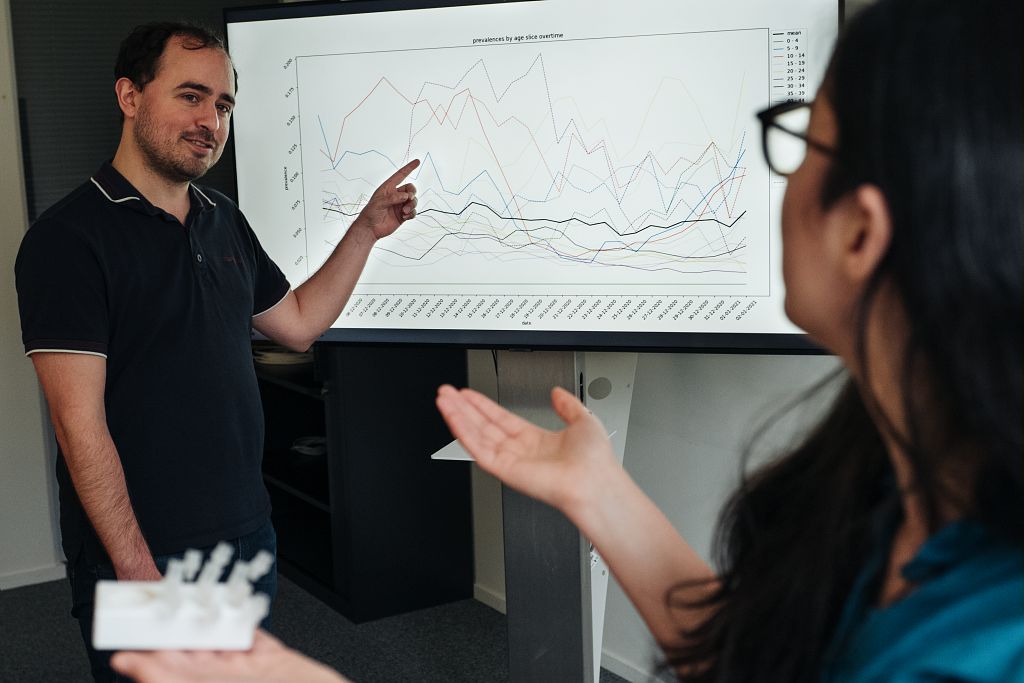The Inocs team's optimisation work wins the scientific prize of the Euro/Roadef challenge
Date:
Changed on 13/07/2022

Martine Labbé: I started in 1985 with a PhD in Mathematics at the Université Libre de Bruxelles (ULB), where I subsequently spent almost all of my career as a researcher and professor and took on various administrative responsibilities, such as being Dean of the faculty. For the past three years I have been in early retirement and am an honorary professor at ULB, which allows me to dedicate my time to scientific research while continuing to collaborate with the Inocs French-Belgian cross-border team, created in 2015. In operations research, my research focuses on “location problems” and “bilevel optimization”. The year I retired, I had the honour of being awarded the EURO Gold medal by the Association of European Operational Research Societies*: a memorable way to end my teaching and research career!
Diego Cattaruzza: I joined Inria and the Inocs team in 2014 for a year of post-doctoral work, before obtaining a position at the École Centrale de Lille where I have been a lecturer since 2015. Since my PhD, which I completed at École des Mines de Saint Etienne, I have been working on mathematical programming techniques in optimization and operations research, with applications for logistics problems.
Matteo Petris: After completing a Bachelor’s degree and a Master’s in mathematics at the University of Udine (Italy), I started working at the University of Venice on the improvement of logistic operations for the Venetian Port Authority. I am now a third-year PhD student in the Inocs team and continue to explore these problems, working in particular on the optimization of vehicle routes.
* In 2019, Martine Labbé is the first woman to receive this prestigious scientific prize, created in 1985 and awarded every two out of three years.
D.C.: Optimization problems arise in many sectors, whether it’s defining an optimization strategy for the operation of a fleet of delivery vehicles – which is the subject of Matteo's work –, or planning maintenance operations on an energy distribution network. The Inocs team aims to develop new models and algorithmic techniques for “complex structure” problems. These contain a large number of variables and constraints - which makes them “large-scale” problems - and certain unpredictable parameters that are modelled as random. Another objective is to find a global way of solving problems that are often addressed independently. For example, two of the essential tasks in logistics are preparing a series of orders and delivering them, but optimising each of them separately does not necessarily optimise the overall process.
M.L.: Diego’s example in logistics can be transposed to other fields and the methods we develop for a given problem can be applied to a multitude of other situations, so long as the conceptual framework through which they are approached is similar: this is the strength of our research! For example, bilevel optimization problems come up in economics when a company has to determine an optimal selling price for a product, which depends on consumer demand as well as the offer from competing companies. The optimization process must therefore take account of the company’s choices, as well as those of its competitors.
M.L.: Exactly! In fact, it is this constant to-and-fro between mathematical theory and applications for concrete problems that allows us to develop generic methods that can be applied to multiple challenges which, at first sight, seem completely different.
D.C.: Working with companies in the logistics sector, for example, allows us to constantly test and refine our approaches.
D.C.: That’s right. The challenge is organised by the French Operations Research and Decision Support Society (ROADEF) in collaboration with EURO, the Association of European Operations Research Societies. One of its objectives is to give industry a better vision of recent developments in these fields, by proposing a complex problem for which university teams propose a solution.
M.P.: For the 2020 edition, RTE, which manages the French electricity transmission network, presented a problem for optimising the planning of power line maintenance. One of the difficulties lay in taking uncertain data into account and modelling the risk of carrying out certain operations.
D.C.: Martine, Matteo, myself and our colleagues Martin Schmidt and Marius Roland, a professor and PhD student at the University of Trier in Germany, were one of 74 teams to take up the challenge. After several elimination rounds, we qualified for the final. Our results placed us 7th in the competition, but our treatment of the problem, supported by theoretical results, impressed the judges who awarded us the scientific prize of the challenge.
M.L.: The ROADEF/EURO is above all an opportunity to further knowledge and develop new approaches. I am particularly delighted that the prize was awarded to a team composed of early-career and experienced researchers with whom I had the pleasure of working!
M.P.: I contributed to the challenge by developing the optimization algorithms designed by our team. This work, which I carried out in parallel with my thesis, opens doors to other scientific methods and the prize is a prestigious achievement, especially for a young researcher.
D.C.: Our participation in the challenge also led to a scientific paper submitted to a leading international journal, which is a great achievement in itself. We have also made the codes and algorithms developed available to the scientific community. For example, RTE will be able to test them in more detail or even use them in real situations. The prize is also tribute to the dynamics of the team and we intend to continue working together and pursue our research for the same applications and in the same spirit...